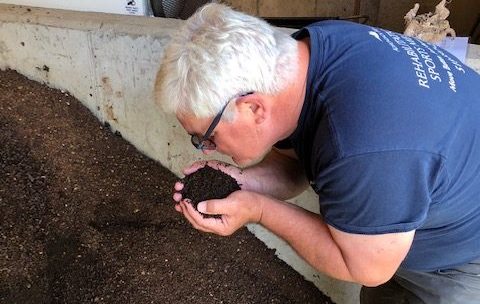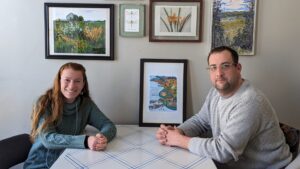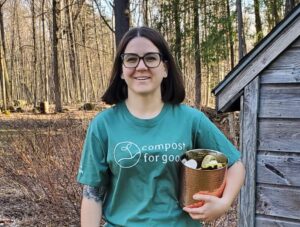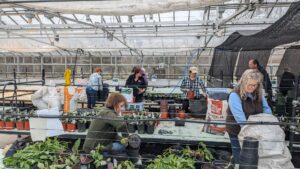By John Culpepper
Soon, large-scale producers of food waste in NYS will be required to either compost or donate their food waste to food pantries. Like many other states, my guess is that it’s just a matter of time before all landfilling of food wastes will be banned in New York State. Vermont banned residential food waste from landfills this year.
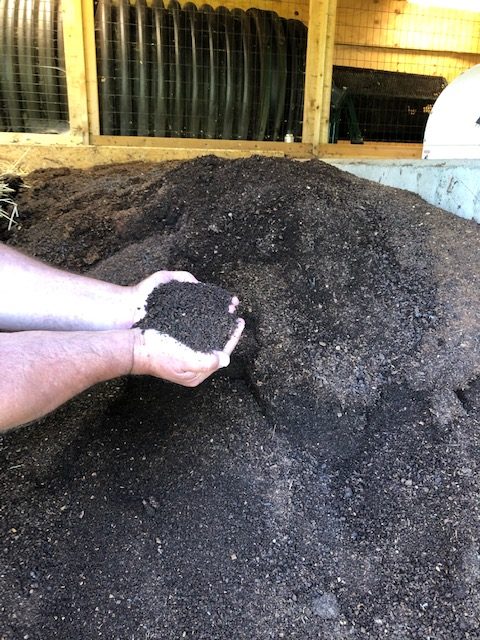
Is it possible to compost everything that comes out of commercial and residential kitchens? Absolutely. Some of you in the Adirondacks have been doing this successfully for decades. However, incorporating meat and dairy into compost systems can be tricky. Until recently.
When composting happens in large rotating drums,temperatures remain high enough to rapidly break down food waste so that smell, flies, and rodents are not an issue. These units have been on the market for many years, but they tend to be expensive and can be complicated to operate.
However, there is now a relatively inexpensive, community-scale rotating drum composter manufactured in the Adirondacks. The plans for that composter, along with an operating manual and other support materials are also free and available to anyone who is interested. These rotating drum composters can turn up to 50,000 pounds of unsorted food waste and other organic materials into a valuable resource. How valuable? Compost is sold within the Adirondacks and elsewhere for $9 per cubic foot, and more.
Four of these locally made composters are now operating in the Adirondacks, and one in New Jersey. Moderately skilled individuals or organizations, in a moderately well-equipped shop can build their own. (see below for resources.) One of these compost drums has been in continuous operation at North Country School/Camp Treetops for over four years. To date, the composters within the Adirondacks have processed well over 170,000 pounds of unsorted food waste since they began operating. With the help of the little microbes that do the heavy lifting, these composters can stabilize the most disgusting food waste that you can imagine and turn it into beautiful material, that smells just like a productive forest soil.
The initiative behind this is called “Adirondack Compost for Good” and thanks to AdkAction, we now have the opportunity to broaden the number of communities that can accomplish composting on a community scale.
Why compost food waste?
- More and more states will require composting;
- Composting takes a “waste” and turns it into a soil-building material that increases the productivity of soils to produce food;
- Composting food waste takes the pressure off of landfills, requiring fewer to be built;
- Composting keeps money in the local economy, and generates new business opportunities;
- Keeping food wastes out of landfills reduces the production of methane, a powerful greenhouse gas.
And these are just a few reasons. My prediction is that within 20-30 years, we will look back on the days when we dumped food waste and other organics into landfills and wonder, “what were we thinking?”
The Adirondack Compost for Good project is interested in promoting composting throughout the Adirondacks. Opportunities for composting include organizations that may want to compost on-site, individuals who want to collect, process, and sell compost to consumers, and towns and villages that want to bring composting to their solid waste receiving stations.
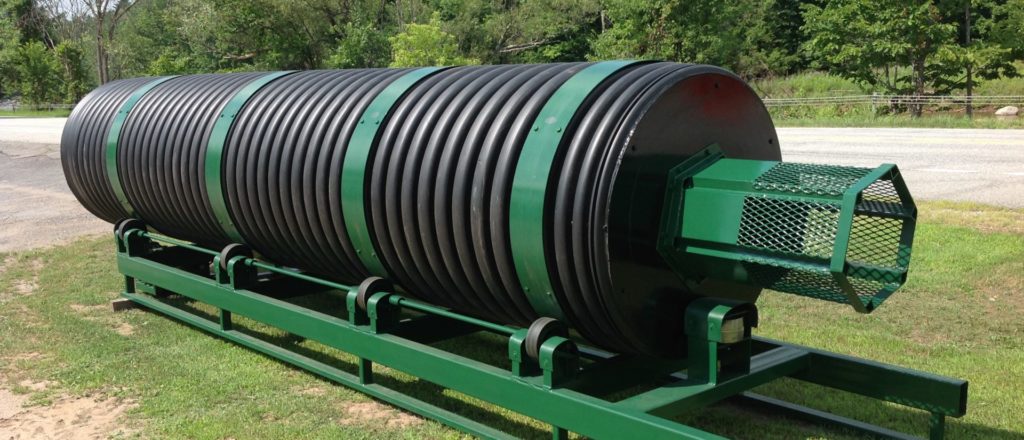
These rotating drum composters can be housed in relatively small sheds. The composters at The Wild Center (not yet open to the public), the Shipman Youth Center (operated by teachers and students at the Lake Placid High School), and Hermon DeKalb Central School are all housed in 40-foot shipping containers.
This is an incredible time for composting in the Adirondacks. Our project is determined to spark a composting revolution that creates business opportunities, keeps money in the local economy, improves farms, builds community, and so much more. For more on how to build and operate one of these composters on our Compost for Good project page.
John Culpepper, co-founder of Compost for Good has been composting for more than four decades, in a wide-variety of facilities. John has been the Director of Facilities and Sustainability for North Country School/Camp Treetops in Lake Placid, NY for almost 20 years.
_______________________
For more information, visit:
Blue Line Compost in Saranac Lake. Carter Rowley and Bill Domenico are the team behind this effort. These folks offer residential and commercial collection services in Saranac Lake, Lake Placid, Jay, and beyond. Limited curbside residential pickup will begin early July. By this fall, they expect to begin selling their compost. They may also be able to build and deliver the rotating drum composter within the Adirondacks and beyond.
Northeast Industrial Composters. This operation is run by Greg LeClair out of his home in Jay, NY. Greg has built all of the rotating drum composters that are now operating in the Adirondacks. Greg can build and deliver to you anywhere in the Adirondacks and beyond. Then search for Culpepper.
BioCycle magazine article by John Culpepper.


